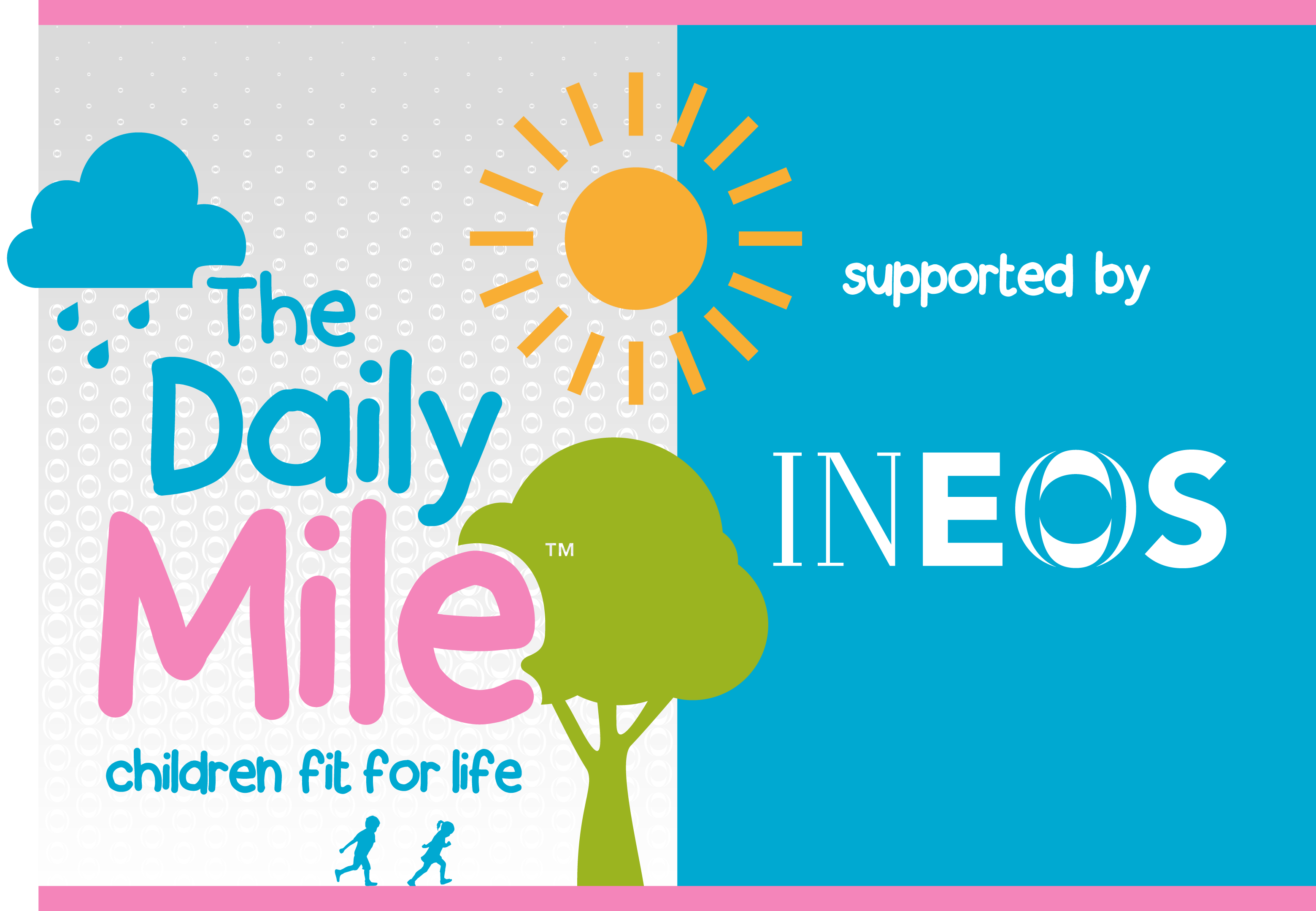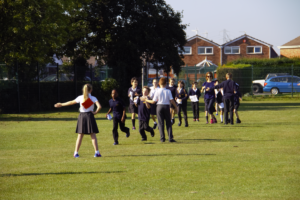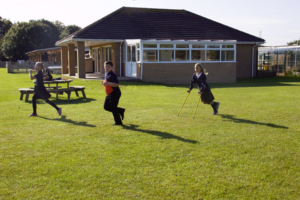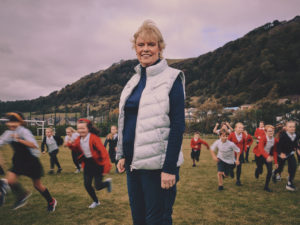Belmont School (SEN)
“The pupils are aware of the impact it has on their wellbeing and access to learning”
Fact File

Where we’re based: Cheltenham, Gloucestershire, England
School Roll: 142 pupils
When we started The Daily Mile: November 2018!
Our Daily Mile Story
Belmont is an all age special school catering for pupils with a wide range of different needs including social, communication and emotional difficulties. We started a trial of The Daily Mile back in November 2018, with a view to include it as part of our school curriculum. Our deputy head teacher introduced the initiative to all staff with the suggestion of taking part in the activity 3-4 times a week. A working party was set up where further ideas could be discussed and shared in order to come with a best fit plan for Belmont and we have a school council which is run by pupil representatives from each class to support the pupil voice.
Introducing The Daily Mile to Belmont School came at a pivotal time in the culture change within our school. A key focus for us a few years ago was to focus on mental health and wellbeing for our staff and pupils. As part of this we underwent the training and implementation of ‘restorative approaches’ across the school. This therapeutic approach ensures that all are supported in the building and maintaining of relationships and the resolving of conflict, when it occurs, in a restorative manner – i.e. Some of our pupils find it easier to ‘walk and talk’ than to ‘sit and talk’.
To be successful in this approach it is essential for time to be allocated to the relationships across our school. Along with other allocated time to give value to the building of relationships we incorporated this into The Daily Mile. This also fits very well with our ‘5 Ways to Wellbeing’ theme to help to keep all members of our community focused on improving their own mental health. This time that The Daily Mile takes each day is dedicated to building relationships across the school and to build strength and fitness, as well as mindfulness or taking notice of nature as they walk. This is an essential part of our day now, as it allows time for staff and pupils to connect on a different level around physical activity that strengthens their relationships and sets them up well emotionally for the day.

Our pupils now see The Daily Mile as part of their school week and are aware of the impact it has on their wellbeing and access to learning. It takes place on site with two routes possible depending on the weather. Being a special school, we have had to be creative with our approach due to the needs of our pupils.
Taking part in The Daily Mile boosts mental wellbeing, promoting a positive attitude and feel-good factor. It can also raise self-esteem, ease anxiety and build confidence and our pupils get a great feeling of satisfaction after they have completed The Daily Mile. For some of our pupils who suffer with anxiety or ASD, The Daily Mile provides routine and stability into part of their school day.
The Daily Mile also provides the opportunity for our pupils to interact socially with peers from other classes as well staff who they wouldn’t normally spend time with during the school day. Pupils can enjoy talking with friends, share experiences and offer support to each other and it provides an opportunity for pupils to talk to adults disclosing any worries they may have.
Many of our children struggle to sit in a classroom for long periods of time and can lose focus easily. This can lead to a deterioration in behaviour which can have an impact on their learning and cause disruption to others. The Daily Mile can provide pupils with an opportunity to get out in the fresh air, let off steam and chat to adults away from the classroom environment.
At Belmont we are beginning to move towards a more creative curriculum to meet the needs of our changing cohort of pupils. The Daily Mile fits in with a variety of topic based themes such as the seasons, weather and mini beasts, and it can support our extracurricular activities, such as outdoor learning and the Duke of Edinburgh award. Taking part in The Daily Mile within our school grounds allow the pupils to explore the outdoor learning environment whilst keeping safe.

The Daily Mile offers an ideal opportunity for students to be involved in their school and its community. Whilst walking or running the Mile, the older children support their younger peers giving them a sense of responsibility as well as acting a mentors and “buddies” for new or younger children. Recently the whole school took part in Diversity Week which involved raising money for charity, listening to guest speakers, getting dressed up and having a cake sale. The Daily Mile turned into a Pride walk where the children walked in non-uniform whilst waving flags and wearing badges and bands.
Staff see it as an opportunity to improve their own fitness and agree that it boosts both physical and mental wellbeing. One member of staff has been inspired to run the Cheltenham half Marathon and uses it to inspire her children whilst doing The Daily Mile.
Quotes
“It’s great to get the children out with the rest of the school, they feel inclusive with each other, helping others around the course.”
– Ms Sharpe
“I love seeing all the pupils together outside in the fresh air whilst showing respect for their school site. It motivates me to exercise more.”
– Caretaker
“The Daily Mile is lovely.”
– Primary pupil
“It is fun because we get to talk with each other. It is exciting because you have fun and you go do fast, slow or medium jogs and it makes you ready for the day. Also, you sometimes you get to see some of you friends you haven’t seen for a while.”
– Secondary pupil
“When I have worries, I share them with Miss and she gives me good advice on how to take my mind off it and think positively.”
– Secondary pupil










